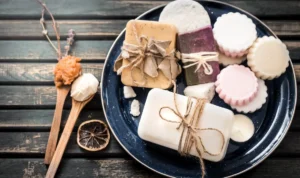The DIY & Crafts Blog
Effective Tips to Prevent Your Drains from Clogging Again
Understanding the Causes of Drain Clogs
Clogged drains are a common household issue that can lead to costly repairs if not addressed promptly. Understanding the root causes of clogs is the first step in preventing them. Typically, drains become clogged due to the accumulation of debris, such as hair, soap scum, food particles, and grease. These materials can build up over time, creating blockages that restrict water flow.
In kitchens, grease is a notorious culprit. When poured down the drain, it cools and solidifies, adhering to the pipe walls. Over time, this narrows the passage, trapping food particles and leading to a clog. In bathrooms, hair and soap scum are the primary offenders. Hair can easily get caught in the drain, and when combined with soap residue, it forms a stubborn blockage.
To effectively prevent clogs, it’s essential to address these common causes. Regular maintenance and mindful usage can significantly reduce the risk of blockages. By understanding what leads to clogs, homeowners can take proactive steps to keep their drains clear and functional.
Practical Tips for Maintaining Clear Drains
Maintaining clear drains doesn’t have to be a daunting task. With a few practical tips, you can keep your plumbing in top shape. First and foremost, be mindful of what goes down your drains. Avoid disposing of grease, coffee grounds, and large food particles in the kitchen sink. Instead, use a strainer to catch debris and dispose of it in the trash.
Regular cleaning is another effective strategy. Use a mixture of vinegar and baking soda to naturally clean your drains. Pour half a cup of baking soda followed by half a cup of vinegar down the drain, let it sit for about 15 minutes, and then flush with hot water. This method helps break down minor blockages and keeps your drains smelling fresh.
For bathroom drains, consider using a drain cover to catch hair before it enters the plumbing system. Regularly clean the cover to ensure it remains effective. Additionally, avoid using chemical drain cleaners frequently, as they can damage your pipes over time. By incorporating these simple habits into your routine, you can significantly reduce the likelihood of clogs.
When to Seek Professional Help
While many drain issues can be resolved with DIY methods, there are times when professional help is necessary. If you notice persistent slow drainage, unpleasant odors, or repeated clogs, it may be time to call a plumber. These symptoms could indicate a more serious underlying issue, such as a blockage deep within the plumbing system or damaged pipes.
Professional plumbers have the tools and expertise to diagnose and resolve complex drain problems. They can use techniques like hydro jetting, which involves using high-pressure water to clear stubborn blockages. Additionally, plumbers can perform a camera inspection to identify the exact cause of the clog and recommend the most effective solution.
Seeking professional assistance not only addresses the immediate issue but also helps prevent future problems. Regular maintenance by a professional can ensure that your plumbing system remains in optimal condition, saving you time and money in the long run. Remember, when in doubt, it’s always best to consult with an expert to avoid exacerbating the problem.









